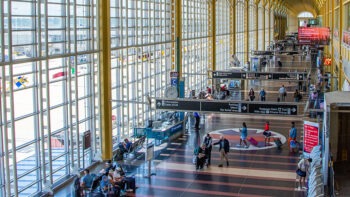
The 27 member-states of the European Union have voted to add Canada and 10 other countries to their non-essential travel list.
The following day, 01JUL, all member states became fully connected to their COVID certification app, a double play signalling a homerun for the restart of travel to Europe this summer.
Switzerland, San Marino and Vatican City have undergone the testing required to join their certification system but connection is pending.
As for the updated travel list, the ten other countries joining Canada are Armenia, Azerbaijan, Bosnia and Herzegovina, Brunei, Jordan, Kosovo, Moldova, Montenegro, Qatar and Saudi Arabia. Hong Kong and Macau were previously included, while Britain is still left out.
While the certifications will ease travel throughout Europe, individual EU member states can still demand a negative COVID test in order to allow travellers entry.
The rules around the EU’s digital COVID certificates prevent any member state from imposing additional restrictions on its holder, unless they’re absolutely necessary and used to safeguard public health. This means that certificate holders will be exempt from measures such as quarantine during their travel.
Ahead of last week’s announcement, 21 EU states had already begun to issue certificates, as well as European Economic Area (EEA) members like Iceland, Norway and Liechtenstein.
“In March, we promised to have an EU-wide system to facilitate free and safe travel within the EU by the summer holidays. Now we can confirm that the EU digital Covid certificate system is up and running,” said EU president Ursula von der Leyen to Business Travel News Europe.
The EU is also in talks with other countries about the reciprocation of their own digital health certification systems and passports, such as the UK’s NHS app as well as the United States. With regards to Britain, an EU spokesman told the Evening Standard last week that discussions are “at the technical level and going in the right direction.”





